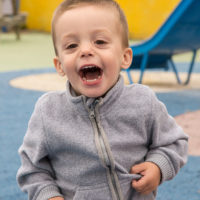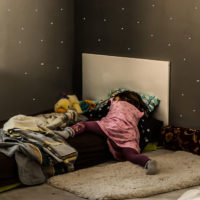Research digest
-

Can physical exercise improve tics and associated mental health difficulties in Tourette syndrome? The jury is out
Physical exercise is increasingly being recommended as part of management for children and young people with mental health problems. There is a growing evidence base that shows physical exercise is associated with improvements in functioning for conditions such as attention deficit hyperactivity disorder (ADHD), although studies are small, they are signifcant.
Read more -

Challenging perspectives on Gilles de la Tourette Syndrome – evidence for a disorder of purposeful actions
Gilles de la Tourette Syndrome (GTS) is a multi-faceted neuropsychiatric developmental disorder with onset in childhood or adolescence. It is characterised by multiple motor and vocal tics that can cause considerable problems including social stigmatisation, low self-esteem and secondary comorbidity, particularly depression.
Read more -

Tourette Syndrome edition
Welcome to the February 2019 edition of The Bridge. The focus of this edition is Tourette Syndrome, a condition, which has much stigma attached, stereotyped views by society about what it means and a lack of national clinical guidance.
Read more -

Sleep Edition
This edition of The Bridge concentrates on sleep, a poignant reminder that I am editing this on a 6am train to London having shortened my own sleep cycle and feeling rather sleep deprived on this dark winter morning.
Read more -

Improvements of adolescent psychopathology after insomnia treatment: Results from a randomized controlled trial over one year.
Many adolescents experience sleep problems, which can be caused by hormonal changes during puberty, and social changes with increasing complexity of daily life while growing up.
Read more -

Sleep partially mediates the link between adverse childhood experiences and delinquency
A recent study has now investigated the mechanisms underlying the apparent link between ACEs and high rates of delinquency in children in foster care, with a specific focus on sleep.
Read more -

Sleep problems in preschoolers predict depression and anxiety severity
The bidirectional links between sleep problems and psychopathology in children have been well-reviewed,1 but few investigations have been performed in young samples and those with early-onset psychopathology.
Read more -

Day-time naps promote vocabulary growth in early childhood
Napping is at least as important, if not more so, than night-time sleep when it comes to vocabulary learning in early childhood. Find out why.
Read more -

Cortical hyperarousal in children may predict insomnia in adolescence
Read about the first developmental study to examine whether increased beta EEG activity in childhood precedes the onset of pathological insomnia symptoms in adolescence.
Read more -

Prescribing in the dark: off-label drug treatments for children with insomnia
Insomnia is a common problem in children with neurodevelopmental disabilities (NDDs), and has a profound effect on quality-of-life.
Read more